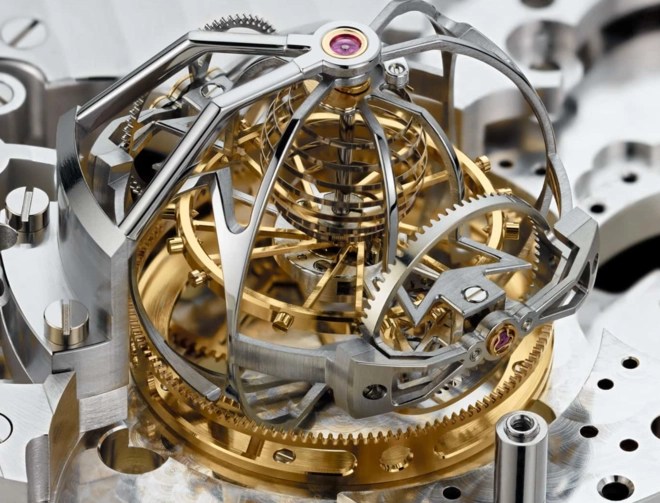Vacheron Constantin has a long tradition of producing tailor-made complicated pocket watches for discerning collectors over its existence, leading up to the reference 57260, which as you may already know, is currently the most complicated pocket watch ever made.
Prior to the creation of Ref. 57260, for an unnamed client in 2015, there were four notable collectors who had one-off complicated pocket watches created by Vacheron Constantin, starting with James Ward Packard (1918), and followed by King Faud I (1929), King Farouk of Egypt (1946), and Count Guy de Boisrouvray (1948).
Needless to say, one of Vacheron Constantin’s many specialties includes creating one-of-a-kind timepieces for wealthy collectors.
Of all the complicated pieces the manufacture has commissioned over its history, none can match the sheer amount of time, effort, and expense required to create this extraordinary horological masterpiece.
It took 3 master watchmakers and 8 years to produce the 57260. Further, the 2800 components were entirely hand decorated by one single master watchmaker, using traditional finishing techniques such as beveling, chamfering, circular graining, “Côtes de Genève” decoration, and more.
An unprecedented timepiece such as this naturally requires a case of unprecedented proportions, and accordingly the white gold case required to house the massive mechanical movement, which has 242 jewels, 5 plates, and double dials, is an expansive 98 mm in diameter by 50 mm thick and weighs close to 1000 grams (over 2 lbs).
This is a record-breaking timepiece, and here are all 57 functions grouped by family: Time functions (6), Perpetual calendar functions: Gregorian and Hebraic (15), Astronomic calendar functions (9), Lunar calendar function (1), Religious calendar function (1), Chronograph (3 column-wheels) functions (4), Alarm functions (6), Westminster Carillon striking functions (8), Further functions (7).
Of the many functions, three stand out the most to us.
First, there is the world’s first mechanical Hebrew calendar, which unlike a Gregorian calendar (also included), calculates the date based on the 19-year Metonic lunisolar cycle.
Second, is a so-called “detached” split-seconds chronograph, which consists of 3 column wheels and results in another complication never before seen in the watch world.
Finally, in our opinion, the third highlight area of the watch functionality is its timekeeping regulator which utilizes a three-shaft tourbillon with a spherical balance-spring.
The Vacheron Constantin 57260 is obviously not something that will ever reach the masses, nor will any timepiece from a haut de gamme watchmaker, however, like any concept watch, this knowledge gained from creating such a technical timepiece will surely result in additional advances that could ultimately end up in more attainable timepieces within Vacheron Constantin, and even at other brands within the Richemont group.
Watch a video of the Vacheron Constantin 57260 HERE.














